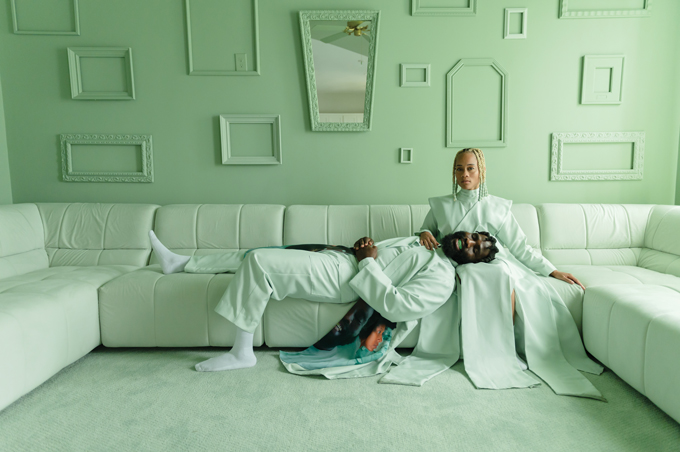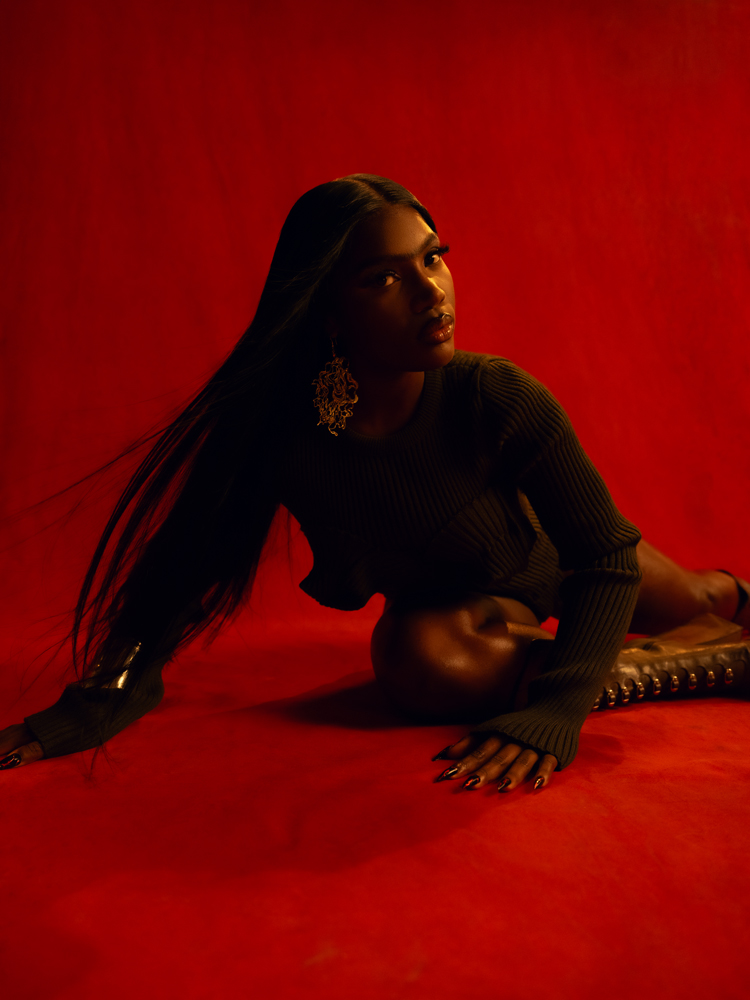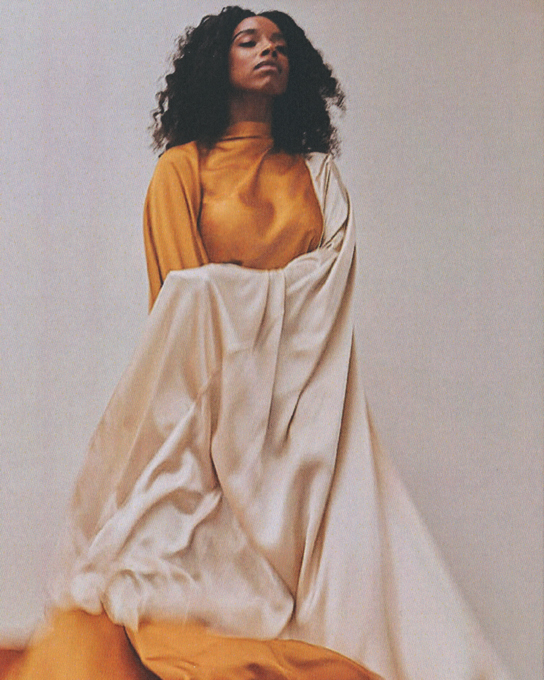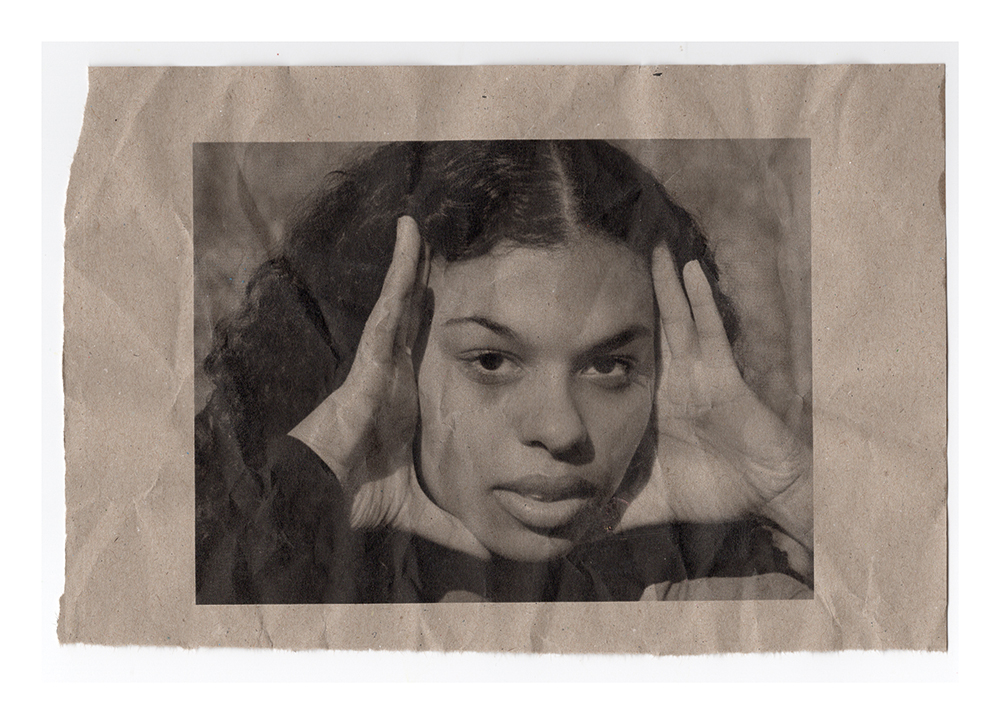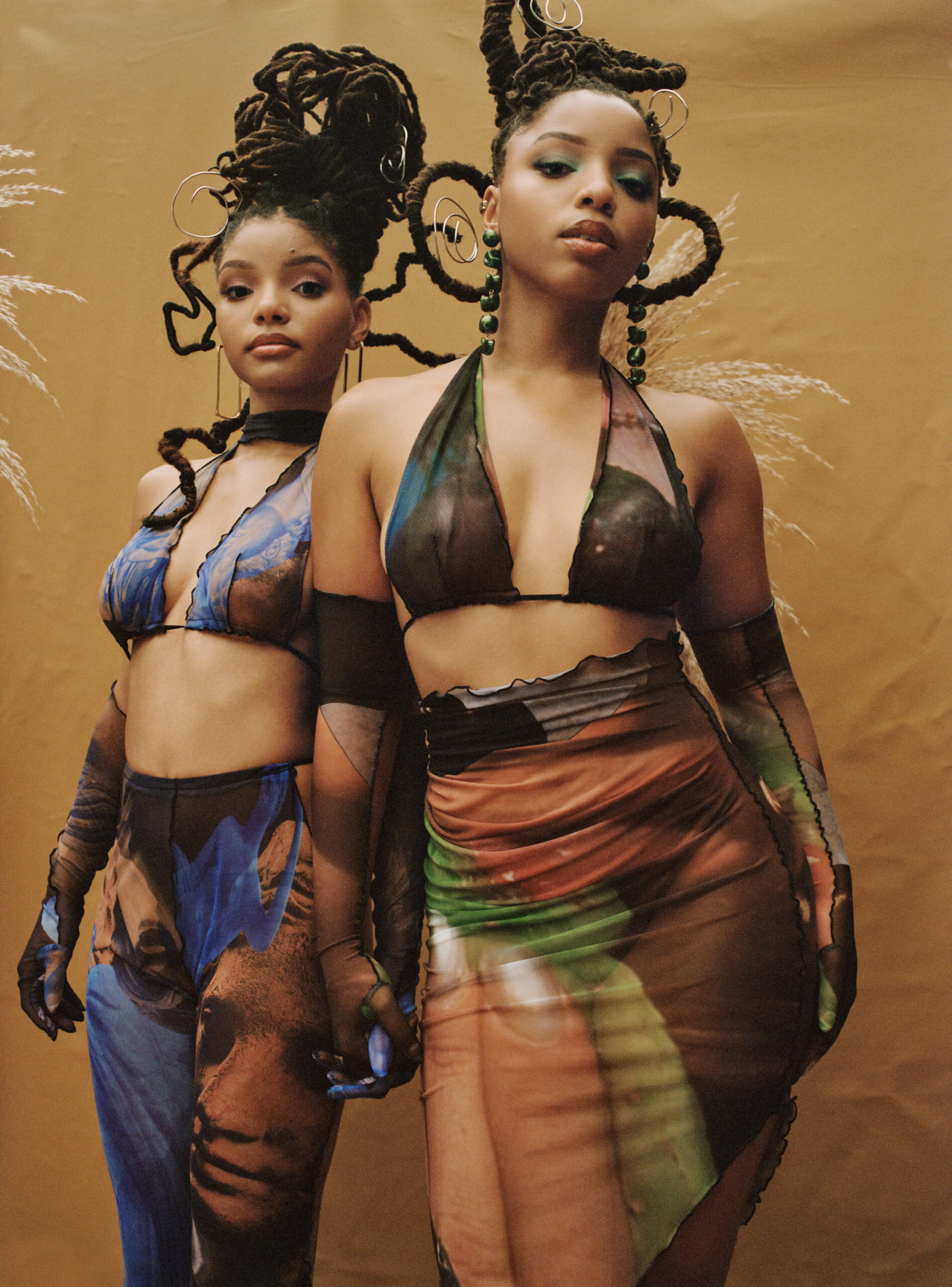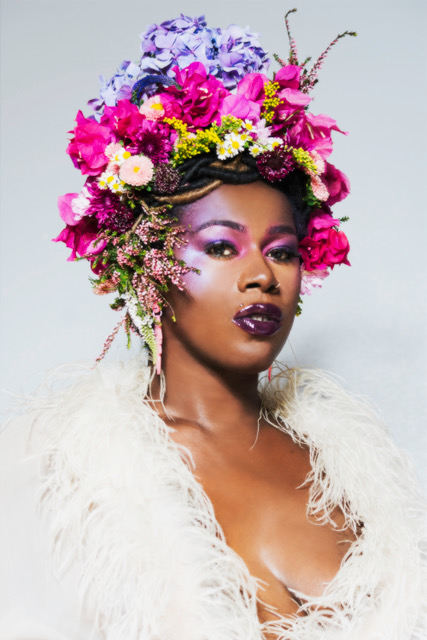HOT LIKE FIRE
MC SHA-ROCK
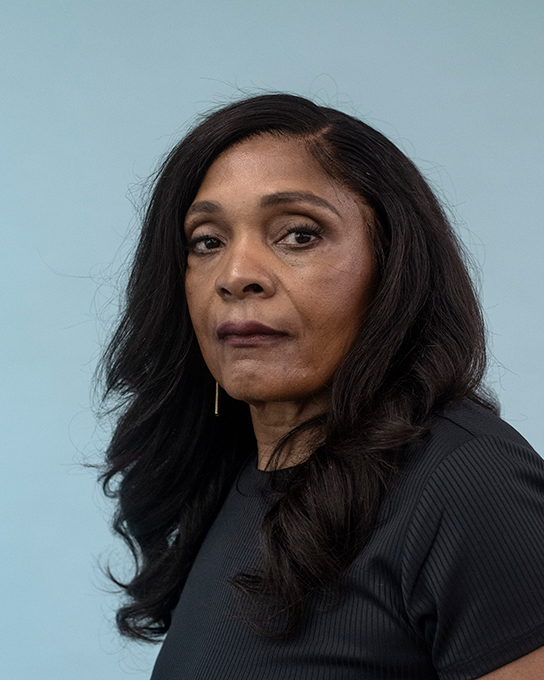
In Hip Hop's Origin Story, MC Sha-Rock Was The First But Far From The Last
Words by Faith Cummings
Images by Eli Durst
Hip hop culture's first woman emcee is here to educate you on the artform's history.
When you hear MC Sha-Rock's cool and calm voice float through your speakers on the 1980 track "That's The Joint", it's clear she's not accompanying anyone but standing strong on her own. As an original member of the Funky 4 and then the +1 in the Funky 4 + 1 after returning to the group, the first woman MC was there from the beginning of hip hop culture's nascent but is rarely given the credit she deserves for pioneering that path, being a co- inventor of the forever iconic rap battle and creating the blueprint for the globally influential artform and multi-billion dollar business that has sat atop the zeitgeist worldwide for decades. So with hip hop celebrating 50 years, it feels more poignant than ever to ensure this groundbreaker gets her due and place in the history books.
"People who don't know hip hop culture say if hip hop started in 1973, how is it that you became the first woman MC in 1977?," she states. "In 1973, you had Coke La Rock, who was DJ Cool Herc's MC. But you didn't have women MCs who were spitting the bars like I was and who were ushering in the new style and new era of rhyming that you see now."
There were so many ways Sha- Rock broke ground, and having the first all-women hype slash security crew called Sister Disco was one of them. She likens them to being the Flava Flav to her Chuck D. "Whenever I would go out and play, they'd guard me and protect me from any negativity that may have been in the parties at the time," she recalls. "But they were also my hype crew and they knew my rhymes. So they would go out to the crowd, recite my lyrics and get the crowd to do the same."
After fame in the streets and in the burgeoning hip hop industry, things progressed quickly for Sha-Rock. The Funky 4 + 1 signed to record label Enjoy, where they released the longest hip hop record in history until this day, "Rappin and Rocking the House". But given the label's less than desirable distribution, they signed with Sugar Hill Records in June of 1980. Along with Grandmaster Flash and the Furious 4, they set the template for new MCs and DJs to follow their lead.
And funnily enough when Sha- Rock was in the thick of it and battling as the only woman MC, she wasn't confronted with the kind of disrespect and discrimination we'd expect given the stories of misogyny and sexism that we've heard from artists in the industry over many decades. "I never had that problem because I was at the beginning of the MC and hip hop culture, where no one judged me for the way I looked and for being a girl," she says. "But they did judge me on my skills as an MC because it was a male-dominated arena. You had to have the crowd saying you were the best too and that you were number one. And that's the legacy I have to my name."
And one of the most heartbreaking parts of Sha-Rock's legacy is the lack of financial gain, especially as hip hop grew and grew to become the cultural juggernaut it is today. "I've never received monetary credit for what I contributed to this culture," she says. "At one point, there was a possibility that we'd be going on tour with Debbie Harry because she was trying to get us off our label. But some of us made the mistake of resigning with Sugar Hill Records. She got us an attorney to get us off and told us whatever we do, don't sign."

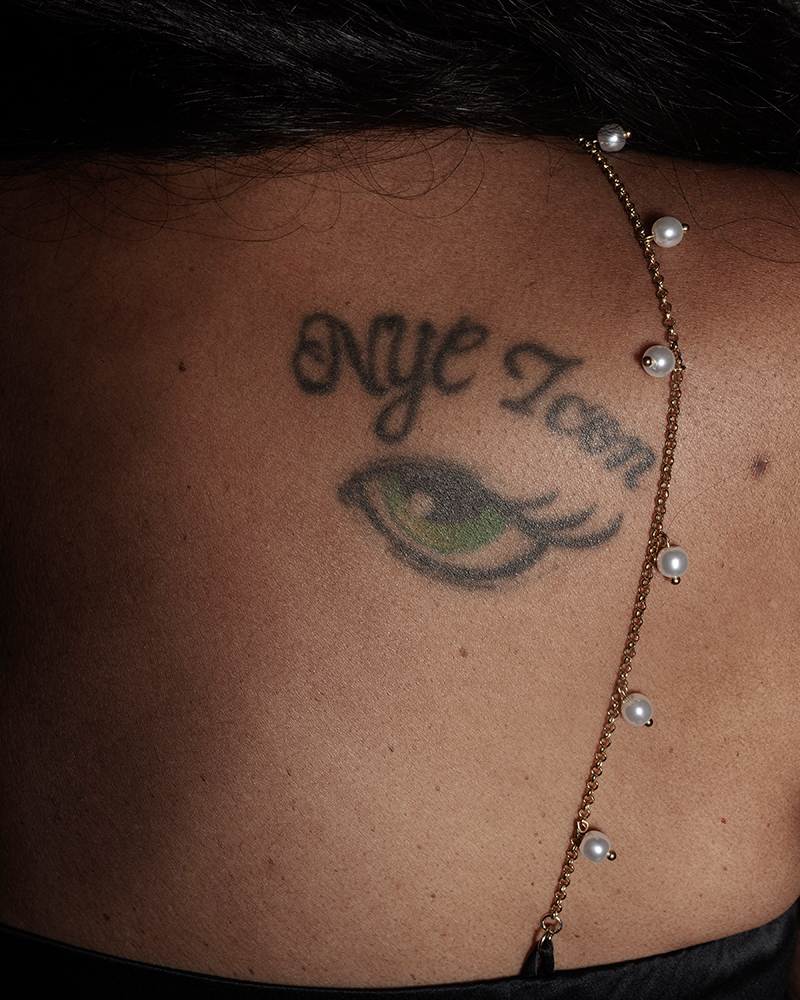
But Sha-Rock and some of her other group members did sign because they were promised that they'd be taken care of. "But that didn't happen," Sha- Rock says. She was four months pregnant at the time and wondering what was next for her. So she relied on her family for support. And after having her child, she got back to performing, went on to be included in the movie Beat Street and made a couple more songs. Sha-Rock still was not being paid though, so she decided to sit out her contract. "I didn't want to record all those songs and never see a dime from them," she says. "I felt like I needed to fall back instead of me hating what I loved so much and so I could continue to appreciate what I started.
Today, Sha-Rock is a professor at Bowie State University, where she's in her second year of teaching a visual arts hip-hop course. She also travels around the world with the Black History 101 Mobile Museum where she talks about the essence and history of hip-hop culture and how it started. So now, the way she expresses herself creatively is through education because the truthful history of hip-hop culture is best told by those who lived it. "I know a lot of professors all over the world at top colleges are teaching hip-hop courses and I think that's good," she says. "But you have to make sure you're bonafide and on point if you're doing that."
It's an interesting time in American history, where the country's chronicle of events is literally under attack by school boards and elected officials. And as someone who is actively working to make sure her place in history is deservedly carved out while educating students on the realities of the past, Sha-Rock advises us all to seek out information on our own and share it, even if it's in unconventional spaces. "Don't count on one specific person or organization to school you on history," she suggests. "When someone tries to deny you history, you have to tell them they're not allowed to stop you from learning. That you're going to be so informed to show them that nothing will stop your ability to interpret what's going on around you, what went on around you in the past and what you need to know about America and in your home."
Sha-Rock is still in high demand, but wants to participate on her own terms. Less than two weeks after our discussion, she'll take the stage at the second inaugural Rock The Bells Festival as a part of the "Queens Of The Mic" lineup, alongside Salt-N-Pepa, MC Lyte, Yo-Yo and other women MCs. She frequently gets asked to emcee again on different songs, but she's extremely selective when it comes to those requests. "It has to mean something," Sha-Rock says of any future moments when she hops on the mic. "I don't record songs just so they can hear me and I can become relevant again. It has to be monumental for me to jump on anybody's track."
We'll all be hearing much more from her soon as she returns to the stage and continues spreading "the gospel of hip-hop culture". Until then, she wants to let the women creatives in the culture know that they're appreciated. She ends with, "Shoutout to all the women out there in every aspect of hip-hop culture, I respect them all".

